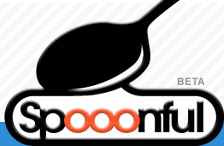The $18 billion music industry includes a relative handful of famous acts and tens of millions of independent and semi-professional artists who have very limited opportunities to profit from their art. Because of the Digital Audio Workstation (music software) revolution, more people are recording music than ever before. And through the use of music discovery sites, more people are distributing music than ever before. But, what we haven’t seen from the music discovery model is a way for DIY and unsigned artists to profit from their art online. Last.fm hopes to change that, apparently.
Starting July 1, Last.FM (or rather, CBS, I should say) will have an Artist Royalty Program, where artists get paid whenever their music is streamed from the site. The most important thing is that this program is intended for and marketed to unsigned/DIY artists, as Last.fm already pays royalties to signed acts via SoundExchange. According to Last.Fm: “This is a big day for DIY artists. We’re leveling the playing field by offering them the same opportunities as established bands to make money from their music. The young musician making music in a bedroom studio has the same chance as the latest major label signing to use Last.fm to build an audience and get rewarded.”
Here’s how royalties will be paid:
- If your track is played on their free radio service you will accrue a 10% of the share of Last.fm’s net revenue from the free radio service.
- If your track is played on their personalized premium radio service, you will accrue the greater of either 10% of the Share of Last.fm’s Net Revenue from the personalized radio service, or US $0.0005 for each complete transmission on the personalized radio service.
- If your track is played on their free on-demand service, you will accrue 30% of the Share of Last.fm’s Net Revenue from the on-demand radio service.
- If your track is played on their premium on-demand service, you will accrue the greater of either 30% of the Share of Last.fm’s Net Revenue from the premium on-demand service, or US $0.005 for each complete transmission on the prepaid or subscription on-demand service.
While the royalties to be paid aren’t much, they’re a good start, demonstrating the larger issue of finding ways for DIYers to profit form their works. Since most people have their music on several (if not all) music discovery sites, hopefully other sites will follow suit (myspace, are you listening?). Imeem implemented a rev share program last year, but it has failed to produce any real revenue for unsigned musicians. With these moves, however, Last.fm has elevated itself past the clutter of music discovery sites, to become a premiere destination for on-demand music discovery. While I personally prefer music recommendation sites like Pandora, after I discover an artist on Pandora, I want to hear more tracks, see more content, and learn more about the artist. That’s where sites like myspace, last.fm, and ilike come in. And while music recommendation sites would be crippled by paying royalties, sites like myspace and last.fm should do so.
Unfortunately, neither Last.Fm nor Imeem is the answer. Rather, they are both part of a solution that will require DIY musicians to aggregate many sources of revenue in order to make some money. But, there are not many of these sources currently available. A lot of DIY musicians have been distributing under Creative Commons (“CC”) for the last 7 years, but nobody has figured out exactly how to monetize CC works. You would think that the collective strength of CC music could be leveraged to make some money for the artists, but this hasn’t happened. The only caveat to this is Magnatune. For this reason, CC has proven to be a valuable alternative to copyright law for reference and informational works, but not for works of art.
So what other profit mechanisms are there for unsigned musicians? There are a ton of iTunes style sites where people can purchase MP3s, but lets face it, most people aren’t buying tracks from us DIY guys. Certainly sites like PumpAudio, YouLicense, and AudioMicro have helped, but the go-to-profit mechanism has yet to be unveiled. Stay tuned!




